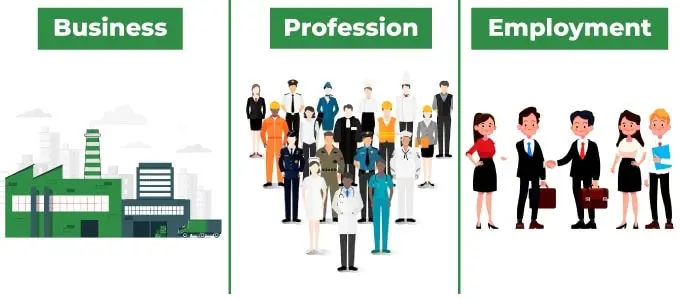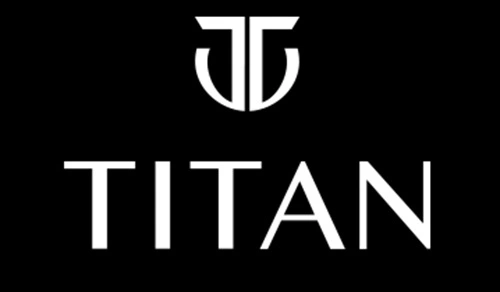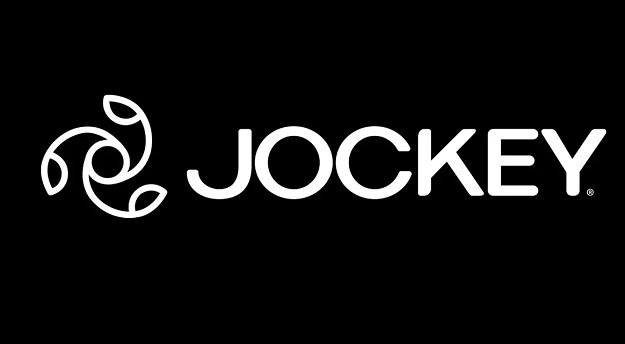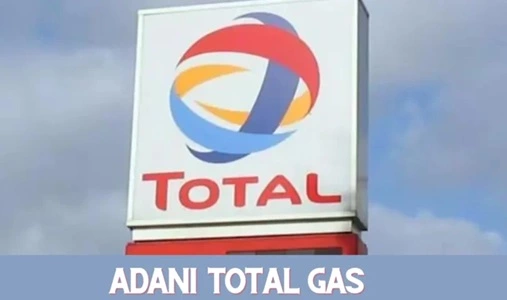From an individual perspective, economic activities can be of three types. These include business, profession and employment. They may sound similar to you, but they are very different. Each type of activity has a different meaning and set of activities. These three activities are helpful for individuals in earning a living. Any type of work can be categorized into one of these three terminologies. Today, we will focus on these three terminologies and help you understand the difference between the three.
What is Business?
Business is an economic activity linked to the production or sale of products and services. One or many individuals may come together to set up a business, and they can generate profits from the business. An example of a business is the ownership of a grocery shop, company, saloon or anything else. In a business, the products or services are sold for monetary gains. Business doesn’t always mean big corporate houses, but it may be something as simple as a street vendor selling vegetables. There are different types of businesses which are based on registration. You will come across the sole owner, partnership or even a limited liability company. In most cases, the business owner is linked to the business’s liabilities. A business has minimal entry barriers, but the capital required is relatively more. The business may be linked to your educational background, or it may not be related to your educational background.
Examples of Business
There are too many examples of business when you look around. Some examples include – corporate companies, brick-and-mortar shops, e-commerce businesses, street vendors, saloons, restaurants and many more.
What is a Profession?
A professional is an individual who has completed a specialized course and training to gain a qualification. In the profession, the skillsets are acquired during the course, and it is required by the professionals to do the job. The people working in a profession get a fee for their services. They may serve individuals or businesses. The scope of the profession is restricted to a particular domain. There is always a special body governing the professionals, training, certifications, examination and other things. Certain qualifications are required to start a professional course, and you must clear all the exams to get the certificate.
Activities for Profession
There are many examples of professions in your daily life. Some common ones are doctors, lawyers, tax consultants, chartered accountants, company secretariat, actuarial and many more.
What is Employment?
The last part that we are going to talk about is employment. Under the employment, the individual is bound by a contract to a business. The employee is responsible for completing the tasks assigned by the employer. The employment can be full-time, part-time or any other type. The employer pays the employee a fixed remuneration. Some employees also work as freelancers and consultants. In most cases, the employee is also awarded a bonus. The qualification for employment would vary depending on the role. For example, for the software developer role, the minimum qualification would be to hire an engineer. The qualification may also consider additional skillsets and experience years. The employee may acquire more skills over time to get a better package. There are also employments where no major qualifications are required. This could be a restaurant worker, cleaner or any other type of employment.
Example For Employment
You will find many employment examples in your daily life. For example, the people working at the grocery store under the owner are employees. Similarly, someone working in a hospital in the admin department or other than the doctors and nurses is an employee. So, the scope of employment is huge, and there are many different domains for employment.
Difference Between Business, Profession & Employment in Tabular Form
Below is a table that summarizes all the differences between Employment and Business & Professional. Check it out now.
| Business | Profession | Employment |
| Business starts based on the decision of the business owner. | The profession starts once the individual completes the course and gets the certification. | Employment starts when the individual gets an offer from an organization and agrees to serve the company. |
| There is no minimum qualification required to start a business. | There are prescribed courses and qualifications required to be a professional. | The qualification for employment depends on the nature of the job. |
| Capital expenditure is required to set up the business. | Limited investment is required for the certification fee. | There is no additional investment required if you meet the qualification. |
| Macroeconomic and microeconomic risks exist. | The magnitude of the risk is low. | There is minimal risk in the employment. |
| Businesses are set up to earn profits & goodwill. | Professionals majorly provide services in exchange for a fee. | The employee receives a fixed salary and incentives for their services. |
| The law directly governs the code of conduct. | The governing body prescribes a code of conduct. | The employer decides the code of conduct. |
| It has a huge scope and can be in any industry and segment. | The scope is limited to providing services around your profession. | The scope is to perform the task provided by the employer. |
| Losses are a matter of concern and liability of the business owner. | Professionals may or may not be held liable for losses. | Employees are not liable for any losses. |
Final Verdict
All three activities (Business, Profession and Employment) are very different from each other, but there is yet a lot of interdependencies here. To put it into perspective, the business would always need professionals and employees’ help to succeed. This applies to any type of business. Similarly, the professionals would need business and employees.
There are different types of professionals serving a different segments of society. For example, you will have doctors who are businesses, and they need employees of the hospital to work. Different professionals are required for the business. Lastly, the employee always needs the support of businesses and professionals to thrive. If the business is profitable, the employment will last, and the employer can pay salaries. World employment exists because of businesses.
















Very impressive